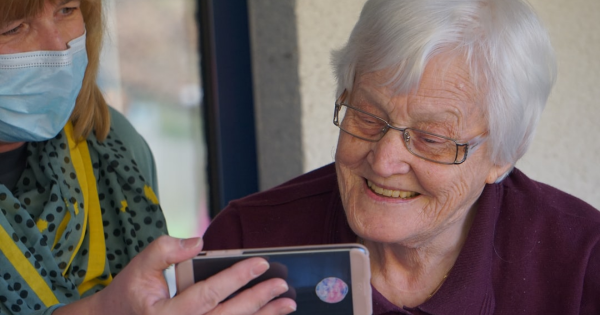The number of people over the age of 65 has been growing at an unprecedented rate. As a result, there has been a strain on the healthcare systems that support seniors.
Additionally, more and more seniors are choosing to remain at home, as long as it is viable to do so. Home care services can provide solutions that support their clients as they choose to age in place. This article looks at some of the trends that will impact home care in the next few years.
1. Technology and Data
Technology can empower caregivers by optimizing certain processes through automation. Machine learning can streamline workflows for staff working in respite care so that they can focus on attending to seniors. For example, digital technology can facilitate record-keeping while maintaining healthcare standards.
Home care service providers can use data to analyze outcomes and review their performance. It can improve accountability by enhancing record keeping and compliance with medical policies.
2. Managed Home Environments
Home care services can also enhance safety for their clients using technology to manage home environments. Such sophisticated applications can boost physiological and psychological health.
Technology for home care services may remind the client to take their medication. The system can notify caregivers in case of an accident. Researchers are looking to develop applications with to-do lists, as well as music playlists.
3. Tele-health
The number of baby boomers who are reaching 65 years has been rising in the past decade. It has led to an increase in demand for home care services, as well as caregivers. Sometimes home caregivers require the assistance of doctors and other medical specialists, which is one of the areas where tele-health technological solutions can assist.
An application may request seniors to answer daily questions to detect health problems at their earliest stages. Devices with IoT capabilities can send real-time data for analysis. A home care service provider may organize a visit to a physician if there are signs of danger.
4. Comprehensive Home Care
Approximately 8 out of 10 seniors have at least one chronic illness, and 68% have more than two. As the number of elderly population increases, so is the strain on the healthcare system. The solution may be with in home personal care.
Comprehensive home care services focus on all aspects of the individual. Specifically their psychological, emotional, and physiological well-being. By addressing those factors, care providers can reduce incidences of illnesses or injuries.
5. Caregiver Qualifications
The demand for caregivers is rising, but so are the minimum academic requirements. Home and respite care services are becoming more complex. Nowadays caregiver skills need to be sufficient to address the needs of seniors with chronic conditions.
Due to the growth of comprehensive home care solutions, clients will require assistance with making lifestyle changes. Caregivers, therefore, must have the education and skills to encourage seniors to exercise and make positive adjustments to their diet. Most providers are opting for caregivers with at least a bachelor’s degree.
There have been significant developments in the home care services sector. Smart applications and devices may play a fundamental role in improving client outcomes. The aim of integrating technology is not to replace but to complement human effort. For more information on our services, visit our website today or call 602-264-8009.

